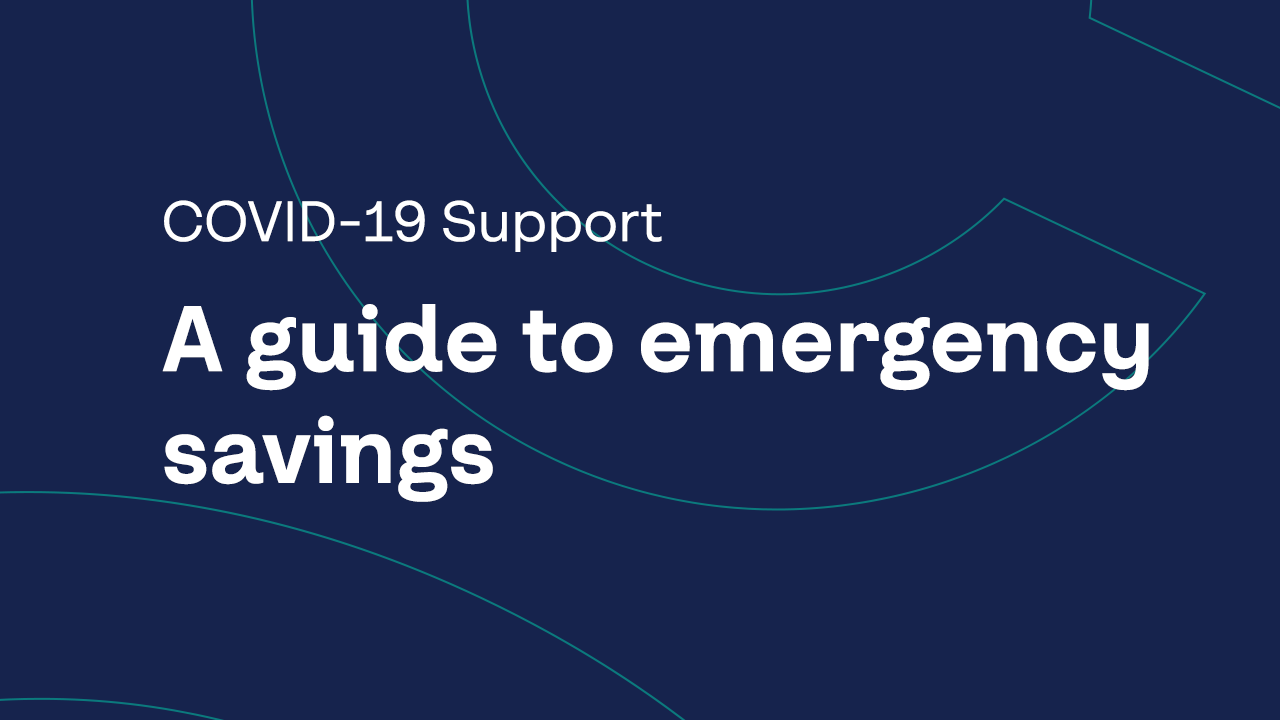None of us stopped to consider the implications of a global pandemic in our wallets because, really, who knew? But it’s times like these that hammer home the reason we need to reflect on our money habits and consider how we should prepare ourselves for emergencies. The best way to prepare, of course, is by creating an emergency fund. If you’ve never made one, that’s ok. Today is your day to start.
Emergency funds could be the most vital part of your financial plan, so you really owe it to yourself to make a plan to build yours today. Here are some guidelines for putting together your very own emergency savings.
First of all, what constitutes an emergency?
Previous to COVID-19, needing a vacation after a particularly dreary and rain-filled January (although we can sympathize) could have been considered an emergency.
But in reality, an emergency can be loosely defined as an unexpected situation that impacts you financially. In normal day-to-day life, needing repairs on your car, a leaky roof, or paying for an expensive flight to attend a family member’s funeral are all examples of emergencies that have financial implications.
How much should I save?
While the amount you’ll need varies greatly depending on your situation, a good rule of thumb is ‘three to nine is fine’. Have enough money to cover between three and nine months of living expenses, if not more. Beginners can aim for the lower end of this range but having six months saved is a comfortable cushion.
How do I save? I can barely afford to pay my rent.
It’s definitely a sizable sum to sock away, no doubt – especially for families with dependents. But the hardest part is always starting out. Here are some tips to get started.
Tip 1: Set guidelines – and stick to them.
It’s very likely that you’ll face some temptation to spend your emergency fund. And that’s totally normal. A great way to stay off the temptation train is to set parameters and define ‘emergency’. A leaking roof is an emergency; a killer sale at your favourite store isn’t.
Tip 2: Pay yourself first.
The easiest way to get into the emergency savings game is to pay yourself first. In other words, paying yourself in the form of financial savings and investments at the beginning of each month, before you begin paying your monthly living expenses and making other purchases.
Set yourself up for success when you set up a pre-authorized transfer from the account your paycheque is deposited right into your savings. This makes saving automatic and it’s an effective way to ensure that you continue to make your monthly contributions month after month. It also removes any temptation to skip a contribution and spend the funds.
Pro tip: this method is also very applicable to other types of savings plans, like your RRSP.
Tip 3: Out of sight, out of mind.
If you have a habit of spending paycheques quicker than an Olympic sprinter, consider setting up a pre-authorized credit (or a direct deposit), so that the money gets tucked away into a pre-specified location automatically each month. It could be small amounts at first, but the key is to keep it consistent.
Tip 4: Put it in the right place.
You want to make sure the money is out of reach, but not too much that you get penalized for withdrawing funds from, say, a locked-in deposit or RRSP.
Set up a dedicated account and shelter it in a TFSA so the interest grows tax-free. That way, it remains accessible but not too accessible.
Tip 5: Take advantage of extra income.
A good tip is to throw in any tax refunds or bonuses that come your way. It’s money you hadn’t planned for, so why not put it towards a good cause? (The good cause is your future self)
Tip 6: Use help.
The Take Charge Money Manager™ is our free personal financial management tool. It can help you set up monthly budgets to keep on top of your spending. Your budgets can also be broken up and customized to your needs and include both regular payments (like your phone bill), and irregular ones (like your emergency fund).
If you’re still not sure where to start, or maybe you’re dealing with other payment obligations (like credit card debt), it wouldn’t hurt to have a quick chat with a financial expert. They’ll be able to help make your money matters simpler and your savings goals much more attainable.



